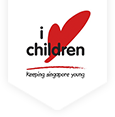Whether or not you are a believer of traditional Chinese confinement practices, taking good care of your body immediately after childbirth is a definite must, especially if you intend to breastfeed your newborn.
Here are some dietary tips for new mums during the confinement period or the one to two months immediately after childbirth:
Tip #1: Avoid dieting
Many new mums are anxious to regain their pre-pregnancy figures, and as a result, resort to dieting in an attempt to speed up the weight loss process. The truth is, dieting immediately after childbirth is potentially harmful to both a mother’s health and her newborn’s well-being, especially if you are breastfeeding your baby.
Breastfeeding places additional nutritional demands on a new mum’s body. Hence, new mums need to ensure sufficient intake of calcium, protein, carbohydrates, vitamins and minerals – all of which are important in the production of breast milk and in meeting the nutritional needs of your newborn.
For example, a breastfeeding mother loses on average 300 mg of calcium everyday as a result of feeding her baby. If the calcium is not replaced by eating calcium-rich foods, such as milk and cheese, calcium will be drawn from other parts of the body, such as the bones and teeth, in order to produce breast milk for the newborn. This may result in loss of bone mass and other bone-related diseases.
Tip #2: Avoid overeating
Often, well-meaning mothers and mothers-in-law stuff new mums with tonic soups brewed with Chinese herbs such as ginseng, angelica and red dates, as well as rich foods such as pig trotters in black vinegar, or chicken cooked with ginger and sesame oil.
This is due to the Chinese belief that the one month period after delivery is a critical period for new mums to recuperate from the physical strain of childbirth and regain their “qi” or internal energy.
However, too much of a good thing may not be healthy, as overeating and over-indulging in tonics may lead to weight gain and higher level of body fats, as well as other health problems.
What’s more, the additional fats can also be transferred to the baby during breastfeeding and result in diarrhea, which in turn prevents babies from getting the much needed nutrition they need.
Tip #3: Avoid harmful foods
Traditionally, new mums were told to avoid many foods that have since been proven by science to be very beneficial to both mother and baby.
For example, Chinese believe that women should avoid “cold” and “chilly” foods like vegetables and fruits after childbirth as these may make them more susceptible to illnesses.
Now, doctors advise new mums to take more fruits and vegetables to ensure their bodies get enough vitamins and minerals, which are important in combating diseases and promoting bowel movement.
Although there are a lot less restrictions and taboos for modern mums when it comes to food, there are still some foods which new mums should avoid or cut down their intake of:
• Caffeine and alcoholic drinks
Drinks with caffeine, such as coffee or tea should be drank in moderation, or otherwise avoided altogether, as excessive caffeine may deprive a new mum of much-needed sleep and may enter the baby’s body through breastfeeding.
Likewise, some studies have shown alcoholic drinks in small amounts may promote the production of breast milk, but too much of such drinks can instead result in less breast milk. Hence, breastfeeding mums may want to restrict their intake of alcohol or avoid it completely.
• Spicy foods
Singaporeans may have a penchant for hot, spicy foods, but the postnatal period may not be the right time to satisfy your chili crab or curry fish head cravings.
Chili, hot peppers and other types of spices that set your tongue on fire, can increase the probability of mouth ulcers, constipation and haemorrhoids. Traditional Chinese sinsehs also consider such foods “heaty” and warn that the “heatiness” can be transferred to the baby through breastfeeding.
• Foods high in monosodium glutamate (MSG)
Monosodium glutamate or MSG can often be found in the foods we take. While a little MSG does little harm to babies, too much of it can be detrimental to your newborn’s health.
The key component of MSG – sodium glutamate – may enter the babies’ body through breast milk and prevent zinc from being absorbed into the body, resulting in zinc deficiency which may affect the intellectual development in young children.
To sum up, just as moderation is the key to healthy eating before childbirth, eating a balanced and nutritious diet is equally important, if not more so for breastfeeding mums because you are literally feeding two persons (yourself and your baby) with every bite you take.




